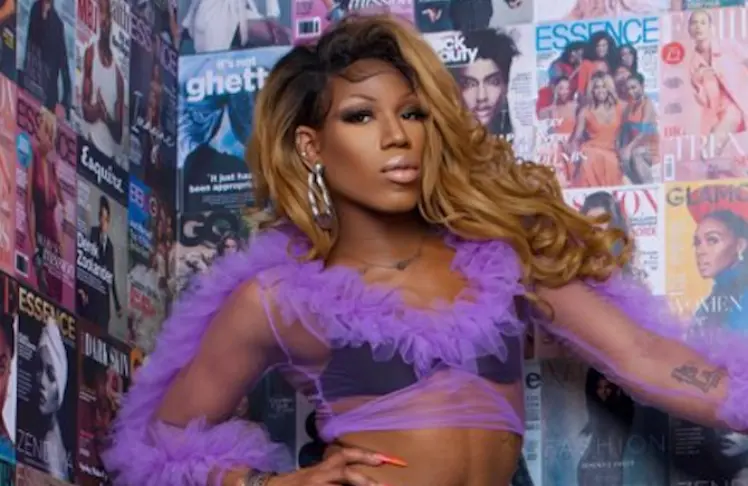
Black history and LGBTQ+ history are incredibly intertwined, from Bayard Rustin organizing the first Freedom Ride in 1947 to Marsha P. Johnson leading the Stonewall Rebellion in 1969. However, many of our LGBTQ+ community members are still being attacked by legislation that attempts to overthrow their rights as we celebrate the legacy of Black culture and life this month.
496 anti-trans bills have already been introduced in 41 states across the country less than three weeks into the year 2024. The proposed legislation covers everything from enforcing training restrictions to banning transgender people from receiving simple healthcare to erasing legal recognition. The current political climate makes it very difficult for Black trans people to exist.
According to Joelle Bayaa-Uzuri Espeut, a Black trans advocate and director of development at The Standard Anomaly, a group that works with Black, LGBTQ+ people to overcome barriers and end stigma, “there has been increased and more immediate displays of misogynistic discrimination targeted at people that I know within the community.”
The National Center for Transgender Equality’s largest survey of transgender people in the United States found that 40% of respondents said they were considering moving because they had experienced discrimination or unequal treatment while living, and 10% said they had already relocated because of bias. (A number that has likely increased since the survey’s completion in 2022.) In what has become known as the “transgender exodus,” some transgender people are choosing to escape hostile states, but Bayaa-Uzuri Espeut claims that lower-income Black and brown trans people do not always have that choice.
The transgender migration is in direct response to the increased crime against the transgender community and the proposed and passed anti-trans bills. People who identify as transgender are feeling less and less safe. She claims that the true harm is being done to Black and brown transgender people who lack the financial resources to relocate.
The so-called Women’s Bill of Rights is among the new dangerous policy. Bayaa-Uzuri Espeut claims the legislation is a direct assault on trans people and is disguised in vocabulary that suggests it is intended to provide protections for cis women and girls under federal law. The legislation doesn’t address issues of sexual justice, capital, or bodily autonomy, but instead creates legal definitions for “man” and “woman” based on their reproductive systems. The policy also aims to limit trans people’s access to single-sex facilities like locker rooms, rape crisis centers, prisons, domestic violence shelters, and restrooms and prevent trans people from changing their gender markers on IDs. It is much more than just restricting how trans people self-identify under the law. The bill was approved in West Virginia on February 14 and is currently being considered in Iowa, Georgia, and a number of other states across the country.
According to Bayaa-Uzuri Espeut, “It plainly targets transgender people, trying to erase and degrade gender-inclusive and expansive language.”
In light of this, affirming Black, trans-led spaces is more significant than ever before. Despite losses, Bayaa-Uzuri Espeut continues to be dedicated to the work she does through The Standard Anomaly. The organization offers health solutions through its services in Houston, Texas, including sexual education, employment opportunities, allyship education, and more.
“The organization’s work is something that I am excited about and have been doing for the past six years,” Bayaa-Uzuri Espeut says. “In a time when there is so much anti-trans rhetoric, harm, and violence being inflicted on the transgender community, I have often found a desire to help co-create braver, valiant spaces for [the] community that do not center and elevate stress and pain.”
Black trans activists are doing incredible things to advance the Black community, but they cannot make significant progress on their own. Bayaa-Uzuri Espeut reminds us that injustice impacts us all and must be eradicated through valiant unity, rather than treating it as a problem that simply affects trans people.
“Rights centered on care, reproductive justice, safety, and equity are issues that affect everyone,” she says. “Trans people, particularly Black trans women, are affected disproportionately at higher levels.” “Protecting and upholding transgender rights has an effect on everyone, not just trans people.”



